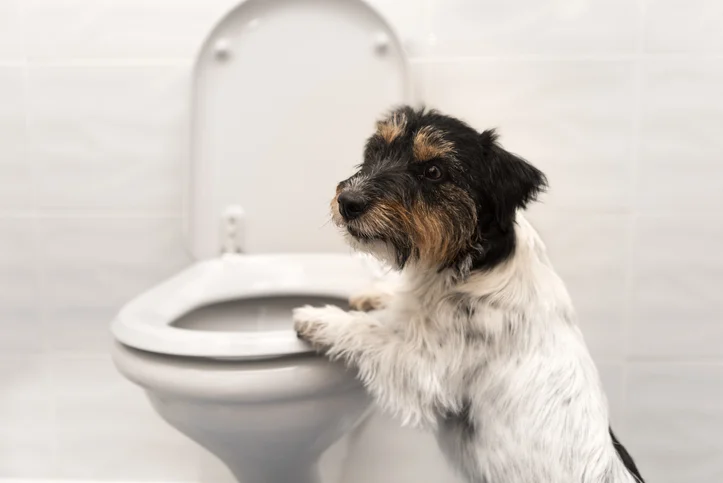Just how do you really feel when it comes to Why you should never flush dog poop down the toilet?

When it involves disposing of waste, particularly animal waste, many individuals frequently resort to the convenient option of flushing it down the toilet. However, this relatively simple remedy can have major repercussions for the setting and public health. In this write-up, we'll discover why flushing pet waste down the toilet is a negative concept and offer different techniques for correct disposal.
Introduction
Proper garbage disposal is vital for preserving ecological sustainability and public health. While it may seem safe to purge animal waste down the toilet, it can cause different concerns, both for the environment and human wellness.
Dangers of flushing pet waste
Ecological influence
Flushing pet waste presents harmful germs and microorganisms into waterways, which can negatively affect water ecological communities. These virus can infect water resources and damage aquatic life, disrupting fragile ecosystems.
Public health worries
Pet waste contains dangerous bacteria such as E. coli and Salmonella, which can position severe wellness risks to human beings. Flushing animal waste down the toilet can pollute water products, bring about the spread of diseases and infections.
Alternatives to flushing
Instead of flushing animal waste down the toilet, there are several alternate disposal techniques that are much more environmentally friendly and hygienic.
Composting
Composting animal waste is an environmentally friendly way to throw away it. By composting, raw material is broken down right into nutrient-rich soil, which can be used to feed gardens and plants.
Landfill disposal
Getting rid of pet waste in a land fill is one more option. While not as eco-friendly as composting, it is a much safer alternative to flushing, as it protects against the contamination of water sources.
Pet dog waste disposal systems
There are customized animal garbage disposal systems offered that safely and hygienically take care of animal waste. These systems usually use enzymes to break down waste and get rid of smells.
Steps to appropriate pet garbage disposal
To guarantee appropriate disposal of pet waste, comply with these actions:
Scooping and landing waste
Frequently scoop and bag animal waste utilizing website eco-friendly bags. This prevents waste from contaminating the environment.
Using designated waste bins
Dispose of bagged animal waste in designated waste bins, such as compost bins or land fill containers. Stay clear of flushing it down the commode in any way expenses.
Cleaning up litter boxes and pet locations on a regular basis
On a regular basis clean can and family pet areas to stop the accumulation of waste and bacteria. Usage pet-safe cleansing products to preserve hygiene.
Advantages of proper disposal approaches
Adopting appropriate disposal methods for pet waste uses a number of advantages:
Minimized environmental pollution
Appropriate disposal methods lower the risk of environmental pollution, securing waterways and ecological communities from contamination
Reduced danger of water contamination.
By staying clear of flushing animal waste down the bathroom, the danger of water contamination is considerably minimized, guarding public health.
Improved sanitation and hygiene
Proper disposal methods promote better sanitation and hygiene, developing a more secure atmosphere for both humans and animals.
Conclusion
Finally, purging pet waste down the bathroom is damaging to the atmosphere and public health. By adopting different disposal approaches and complying with proper waste monitoring methods, we can reduce the adverse effect of animal waste and add to a cleaner, healthier earth.
What To Do With Dog Poo – The Do's And Don'ts Of Disposing Of Faeces
Dog poo bins
Some councils provide dedicated dog waste bins in popular dog-walking areas that can take dog poo that has been bagged but you can legally dispose of dog waste in any public litter bin, as long as it is securely bagged. This also applies to your wheelie bin at home.
Do not flush
Water companies do not recommend flushing dog faeces down the toilet because certain parasites can survive the water processing treatment and are potentially harmful to humans. You should also never consider flushing dog poo that has been bagged down the toilet as the bags will not break down and instead create severe blockages in the sewage system.
In the woods
The Forestry Commission promotes a ‘stick and flick’ method for dealing with waste in the woods. This means finding a stick and using it to flick any poo from off the path so that it is out of the way of other walkers. You could also bury it as long as it is not in an area where there might be livestock.
Livestock
Parasites found in dog poo can be transmitted to livestock if they inadvertently eat infected faeces that has been left on grazing land. This could result in the death of sheep or abortion in cattle so you should always make sure you pick up your dog’s waste in fields where livestock could be present.

On a regular basis clean can and family pet areas to stop the accumulation of waste and bacteria. Usage pet-safe cleansing products to preserve hygiene.
Advantages of proper disposal approaches
Adopting appropriate disposal methods for pet waste uses a number of advantages:
Minimized environmental pollution
Appropriate disposal methods lower the risk of environmental pollution, securing waterways and ecological communities from contamination
Reduced danger of water contamination.
By staying clear of flushing animal waste down the bathroom, the danger of water contamination is considerably minimized, guarding public health.
Improved sanitation and hygiene
Proper disposal methods promote better sanitation and hygiene, developing a more secure atmosphere for both humans and animals.
Conclusion
Finally, purging pet waste down the bathroom is damaging to the atmosphere and public health. By adopting different disposal approaches and complying with proper waste monitoring methods, we can reduce the adverse effect of animal waste and add to a cleaner, healthier earth.
What To Do With Dog Poo – The Do's And Don'ts Of Disposing Of Faeces
Dog poo bins
Some councils provide dedicated dog waste bins in popular dog-walking areas that can take dog poo that has been bagged but you can legally dispose of dog waste in any public litter bin, as long as it is securely bagged. This also applies to your wheelie bin at home.
Do not flush
Water companies do not recommend flushing dog faeces down the toilet because certain parasites can survive the water processing treatment and are potentially harmful to humans. You should also never consider flushing dog poo that has been bagged down the toilet as the bags will not break down and instead create severe blockages in the sewage system.
In the woods
The Forestry Commission promotes a ‘stick and flick’ method for dealing with waste in the woods. This means finding a stick and using it to flick any poo from off the path so that it is out of the way of other walkers. You could also bury it as long as it is not in an area where there might be livestock.
Livestock
Parasites found in dog poo can be transmitted to livestock if they inadvertently eat infected faeces that has been left on grazing land. This could result in the death of sheep or abortion in cattle so you should always make sure you pick up your dog’s waste in fields where livestock could be present.

I am very fascinated by 10 Things You Should Never Flush Down The Toilet and I hope you enjoyed the entire post. Enjoyed reading our article? Please quickly share it. Let somebody else locate it. I love your readership.
Click Here